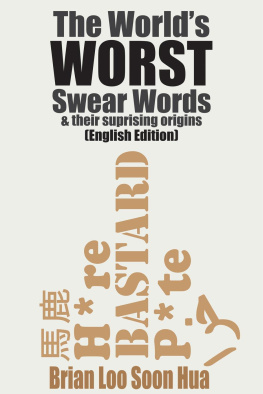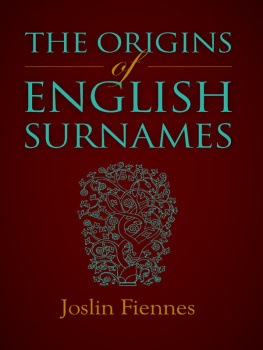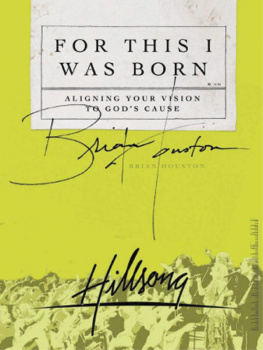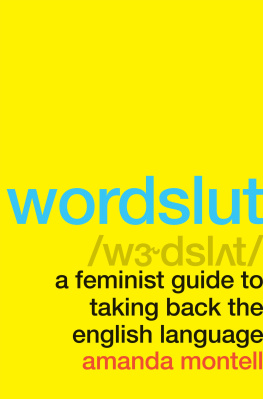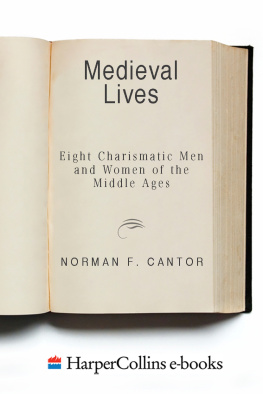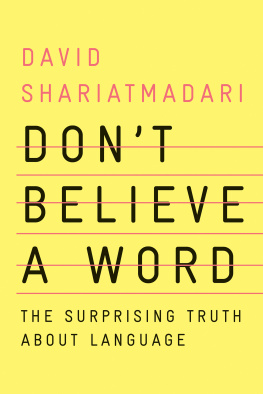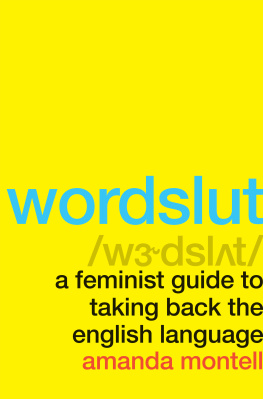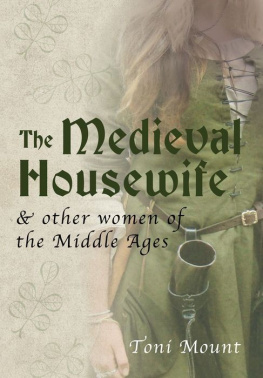The World's Worst Swear Words & Their Surprising Origins: English
The World's Swear Words, Volume 1
Brian Loo Soon Hua
Published by Brian Loo Soon Hua, 2020.
While every precaution has been taken in the preparation of this book, the publisher assumes no responsibility for errors or omissions, or for damages resulting from the use of the information contained herein.
THE WORLD'S WORST SWEAR WORDS & THEIR SURPRISING ORIGINS: ENGLISH
First edition. March 7, 2020.
Copyright 2020 Brian Loo Soon Hua.
Written by Brian Loo Soon Hua.
10 9 8 7 6 5 4 3 2 1
To Michael, Bilun, Dennis, Muriel, Franois, Lou and Van, here's to our numerous late-night discussion and drink sessions in Paris.
And special thanks to Brennon Ramsey https://brennonramsey.github.io/ for the unique cover art.
L ets be honest, everyone swears. Linguistic studies from as far back as the 1980s suggest that the average person uses between eighty and ninety taboo words a day. Now, multiply this number by seven billion or so. What that means is yes, there is a lot of swearing flitting about on a daily basis. In the United States alone, a set of ten words consistently accounts for over eighty percent of public swearing. And now, thanks to our increasingly connected world with its shrinking borders and ease of communication, swear words are being shared across languages like never before.
Bordeaux is one of my favourite cities, and whenever Im in town I make it a point to stay at my regular AirBnB, a nineteenth-century Bordelaise house on the right bank of the River Garonne far from the hustle and bustle of historic downtown. One lovely afternoon, as I walked back towards the house along the shady riverbank piste de velo , enjoying the cool spring breeze while dodging speeding French cyclists zipping past me from all directions, I chance upon one of the neighbours, a friendly older woman who lived with her husband a few doors down the street. Madame Rousseau was standing outside, pointing excitedly at the little bus stop situated right in front of her home. Someone, most likely a neighbours adolescent son (we had a narrow list of possible suspects), had drawn a rude splash of garishly-coloured graffiti using marker pen on the glass panel of the bus stop. Ben, cest un gros mot quil a ecrit, non? asked an excited Madame. (Well, hes written a bad word, hasnt he?).
I walked closer to inspect whatever the vandal-slash-amateur artist had left behind and sure enough, the gaudy fuchsia, neon green and bubblegum pink wash of letters rudely spelled out: FUCK
Stunned, I asked - after performing the obligatory cheek kiss greeting known as la bise - how she, a French-speaking septagenarian could have possibly understood that word. With her typical charming shrug, she merely said, while making a sweeping all around gesture, Ben oui, cest un peu partout . Yes of course, its just about everywhere.
What does it mean when a completely monolingual French speaker in her seventies (who eats oysters from the Bassin dArcachon on Sundays and buys live lampreys from the fishmonger to cook lamproie a la Bordelaise (a tasty if somewhat shockingly-prepared dish from Bordeaux) recognises and even comprehends the meaning of the English word fuck ? What does it all entail? Has English profanity (along with other anglicismes , but lets just focus on the profanity) been finally creeping into that pristine, sacred institution that is the French language? From the looks of the charmingly misspelled English-language graffiti mushrooming all over Paris and other major cities (such as the exquisitely neon yellow fuck you big mother bitche spotted by this author on the drab wall of an apartment block along the RER B train line somewhere between Charles de Gaulle Airport and Gare du Nord) the casual observer would say - very likely.
At an international level, this increasing familiarity with English profanity is likely due to three factors. The first one is the mass media, with expletive-filled modern movies essentially reducing the shock value of swear words and even making them cool - hence the neighbourhood graffiti artists working hard to push vulgar Anglicisms as hip art even in the heart of France. The second factor is the Internet which, having essentially broken down geographical and political borders, now allows an (almost) unrestricted and instantaneous flow of person-to-person information across the globe. The third, is the allure of the profane.
What is profanity but a spontaneous verbal reflection of our strongest, deepest and most heightened emotions? We use profanity when we are in pain, when we are under stress, when we want to inflict emotional suffering on others and when we want to show our abject disagreement. Vulgar words are powerful on all levels; as children, we learn them differently than regular words; our brains encode them differently; we even articulate them differently - English swear words like fuck, shit, cunt, bitch etc are often monosyllabic, short and terse. They can be borrowed between different languages and they can evolve over time but the most common ones in English are ancient, originating from Germanic rather than Latin roots. Whore, fart and shit for example, are among the oldest words in the English language. And swear words in many languages all over the world are indeed old. Our Bordelais vandal is only one in a long line of graffiti artists intent on making his bawdy presence known through shock.
When Mount Vesuvius erupted in AD 79, the nearby city of Pompeii - buildings, streets, citizens and all - was buried under tons of volcanic ash. Almost two thousand years later, visitors to Pompeii can now marvel at the remarkably well-preserved buildings protected, ironically enough, by the same volcanic ash that had decimated its population. These same visitors can also marvel, blush and gasp at the obscene graffiti on unearthed apartment buildings, taverns, inns and - surprise, surprise - brothels: Iucundus cunum lingit Rusticae (Iucundus licks Rusticas cunt), Victor valea qui bene futues (Victor, may you fare well who fucks well) and Myrtale Cassacos fellas (Myrtale, you suck the Cassaci - implying she did it to the men of the Cassaci family!). There are the typical compliments from satisfied clients - Murtis bene felas (Murtis, you suck well), highly unoriginal and eyeroll-inducing boasts such as hic ego puellas multas futui (here I fucked many girls) and slightly more charmingly honest declarations such as hic ego cum veni futui deinde redei domi (when I came here, I fucked, and then I returned home).
Taboo words and phrases such as the ones above are often among the first a new language learner acquires - and usually neither from a formal textbook nor from an approving language teacher. We learn to utter expletives out of frustration, anger, duress or annoyance. We provoke others with them. We use them as flags to indicate our internal emotional states. We scold young children for saying them and shake our heads disapprovingly at adults who teach them to their children. We disguise them with euphemisms so as not to offend others - rather ironic, since everyone swears. Swearing lays bear our souls for all to see.
I remember that afternoon in Bordeaux, laughing along with Madame Rousseau, shaking our heads and clucking our tongues at the increasingly creative graffiti cropping up all over the neighbourhood. As she invited me into her house for a tisane, she sneered and cussed at the cheeky teenagers du quartier . Her choice of words? Mince (slim) and punaise (stinkbug) - French euphemisms used in polite company to replace merde (shit) and putain (fuck).

